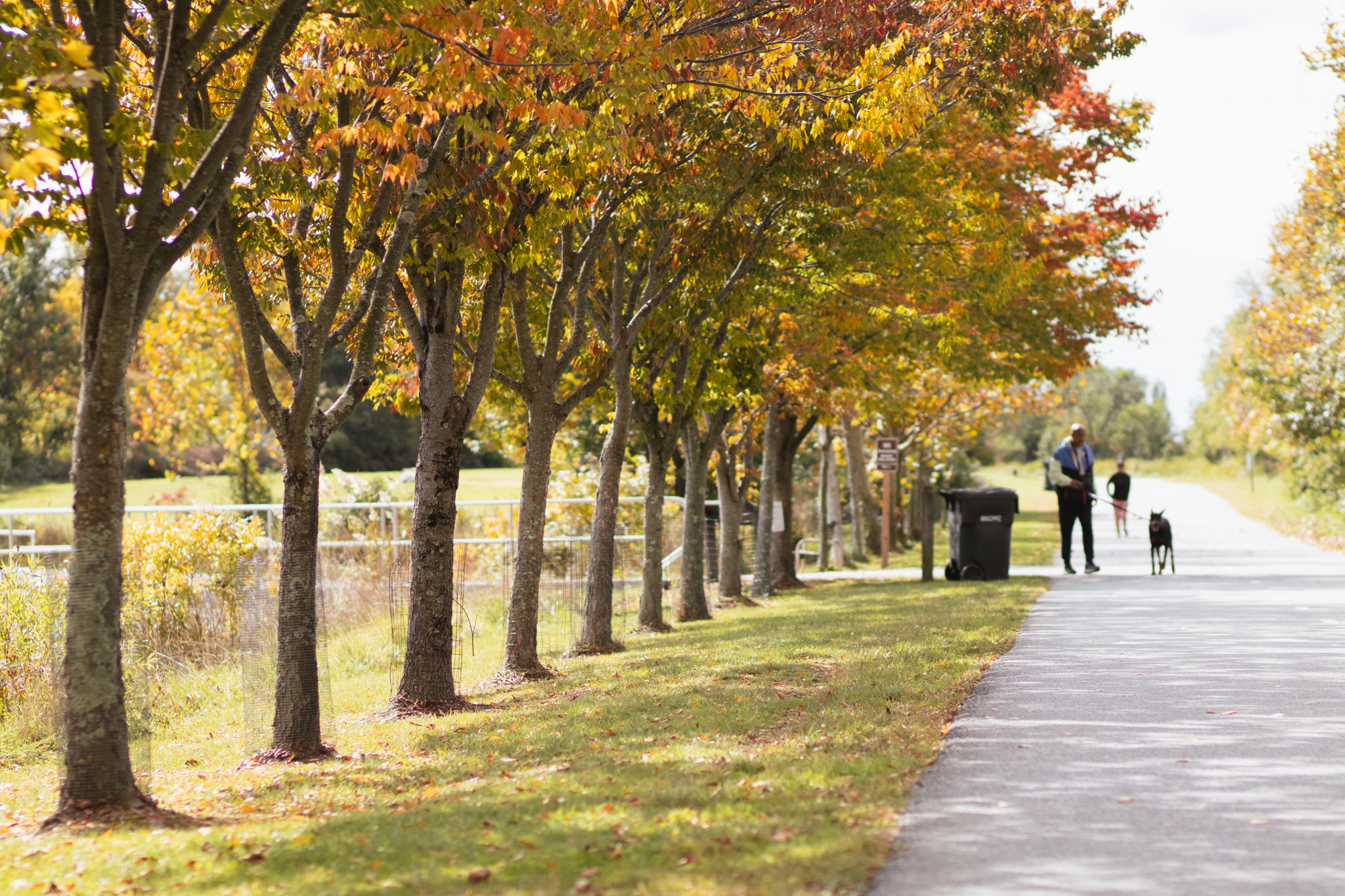The College Park City Council on Tuesday discussed how to increase the city’s tree canopy after a recent assessment showed declines in the amount of tree coverage in residential areas.
Council members heard a presentation on data collected during a tree canopy assessment conducted after approval in the city’s fiscal year 2023 budget. A tree canopy is a measure of how much of an area is shaded by trees — an important factor when it comes to air pollution absorption, reducing rainwater runoff and reducing erosion.
SavATree, a tree shrub and lawn care company contracted by the city to complete the recent assessment, used satellite imagery and data from 2009 to 2020 to determine tree canopy change in the city.
According to the assessment results, the total acreage and percentage of tree canopy coverage in the city’s residential areas have both decreased, Mike Galvin, SavATree’s director, said. From 2009 to 2020, residential areas in the city have lost more than eight acres — or one percent — of their nearly 500 acre residential tree canopy.
But Galvin is happy with the direction the city is going in to mitigate the loss of residential tree canopy, he said.
“You’ve shown some great proactive steps in identifying that as the key issue and taking some steps to mitigate that trajectory,” Galvin said.
[College Park City Council considers tax credits for affordable housing, blighted properties]
This assessment came after the city’s last tree canopy assessment, presented to the council in April 2019, showed significant tree canopy loss on residential land in the city.
The results prompted the council to pass a tree ordinance which was rolled out between July 1, 2022 and Feb. 1, 2023. Under the ordinance, residents are required to seek a permit to remove or prune trees on residential land, with a $500 fee for those who violate the ordinance.
According to Robert Marsili, College Park’s public works director, the city has also entered into a contract with a tree-canopy-focused non-profit called Casey Trees that has allowed the city to replant more than 70 trees on residential property. The city plans to continue replanting more trees in the next year, Marsili said.
Marsili also highlighted the city’s tree canopy enhancement program, which allows residents to be reimbursed up to $750 over five years for planting trees.
District 2 council member Llatetra Brown-Esters stressed the necessity of communication on the city’s tree canopy ordinance, especially to newer residents.
“We have people who are moving into the city on a consistent basis who may not be aware,” Esters said. “I’ve watched people move in and one of the first things they do is cut down trees and it hurts my heart.”
Esters said she wants the city to do another assessment with newer data in the near future. It’s important for council members and residents to have a more accurate and updated look at the city’s tree canopy status beyond 2020, she said.
[College Park residents divided over student rent subsidy pilot program]
Concern about the tree canopy increased after a major storm caused extensive damage to College Park in July 2022. Galvin said the storm could have produced some “detectable change” in the city’s tree canopy.
District 1 council member Jacob Hernandez also stressed the importance of paying closer attention to the tree canopy in the city’s less wealthy areas. Those neighborhoods could have more trouble with forestation, Hernandez said.
“One of the things that has always existed in the background is that some of the lower socioeconomic locations [don’t have] a lot of trees,” Hernandez said.
According to Galvin, the 2022 Inflation Reduction Act could help the city improve its tree canopy. The act provides $1.5 billion nationally for urban forests, with a specific focus of increasing tree equity in underprivileged areas, Galvin said.
District 4 council member Maria Mackie said the city’s messaging and initiatives around trees are particularly important. She is concerned that residents could be misled into cutting down trees on their property.
“The city of College Park always has tree health in mind. The average person doesn’t really know about the health of the tree,” Mackie said. “There are some disreputable companies that do come around saying ‘your tree needs to be cut down,’ and it’s very good that our city has this program to help our residents with that.”



